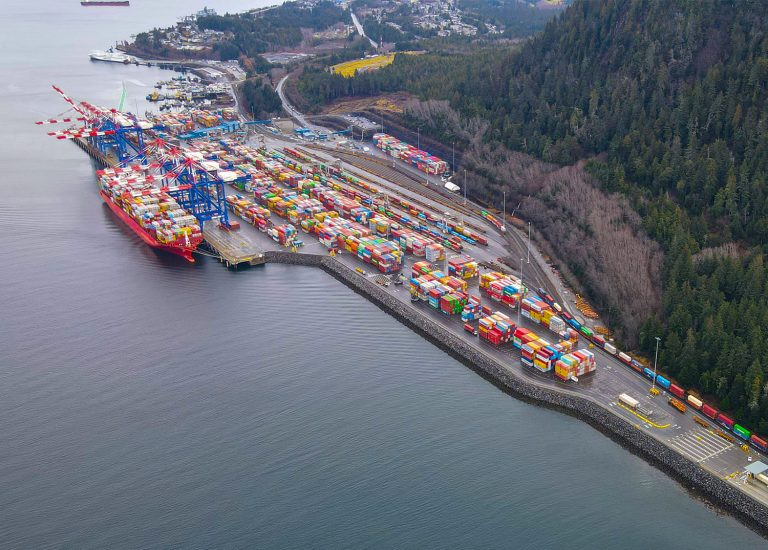The Council
The Canadian Chamber of Commerce and its members on the Western Executive Council are focused on a handful of transformational policies that will strengthen Western Canada and the entire country. The Council plays a leading role in developing and advocating sustainable, positive policies that include uniquely Western perspectives for the benefit of all Canadians.
The Canadian Chamber of Commerce’s Western Executive Council is a forum of Chief Executive Officers from a cross section of companies that are committed to working with government to build a stronger Western Canadian economy, and by extension, a more successful and sustainable economy for all of Canada.
Creating sustainable economic growth will not be accomplished by a single measure, but instead by deploying a range of tools available, and by including a broad range of businesses. Leveraging the unique perspective and business capacity of Western Canada will be essential.
Policy Priorities
In order to grow the Canadian economy, governments must address the infrastructure deficit in Canada to support getting goods to market safely and efficiently.
As a major trading corridor, Western Canada is a critical gateway to growing markets, including the Indo-Pacific region. Business must be able to get goods to market reliably, efficiently and sustainably.
Government must:
- Commit to strategic, long-term investments in both physical and digital infrastructure.
- Develop and implement a Pacific Gateway strategy that will bring forward measurable economic returns.
- Provide regulatory certainty to ensure that we can build the projects we need.
Western Canada can meet the growing demand for energy and natural resources.
As an ethical society that produces energy and natural resources in a responsible and sustainable way, Canada has a responsibility and an opportunity to provide these resources to our allies.
Government must:
- Act with a sense of urgency and clarity to make sure we take advantage of our ability to support the global need for energy and natural resources.
- Promote responsible extraction, value-added processing and end-use manufacturing in Canada.
- Provide a regulatory environment to attract new investments in our natural resources, and clean fuels, including LNG, hydrogen and sustainable biofuels.
In the next 40 years, the world needs to produce the equivalent of all of the food produced in the last 10,000 years.
Western Canadian agriculture has the ability to meet this demand.
Government must:
- Invest and incentivize innovation in the agriculture and value-added food sector at the same level as other innovative sectors in the Canadian economy.
- Build reliable digital infrastructure in both urban and rural settings.
- Modernize our regulatory regime to support long-term agriculture growth and innovation.
Canada has been experiencing unprecedented labour shortages affecting businesses in nearly all sectors. An aging population, early retirements, immigration backlogs and talent underutilization of whole segments of the population have contributed to the creation of a tight labour market.
People are the engine of job creation and growth, and a multifaceted approach needs to be adopted to address Canada’s productivity, innovation and critical skills gap.
It will also be critical to engage and create opportunities for Indigenous and Métis peoples to play a key role in addressing the labour challenges in Western Canada.
Government must:
- Collaborate more closely with provincial, territorial and municipal governments, and with the private sector, to increase the Provincial Nominee Program, and to better understand labour market needs across the Western provinces.
- Develop a comprehensive strategy that looks at immigration, reskilling and up-skilling, new training approaches and talent pipeline management systems all working together.
Updates

December 2023: Robin Guy, Western Executive Council Lead and Vice President and Deputy Leader, Government Relations, writes in iPolitics that Western Canada’s potential will go unrealized unless the government focuses on measures that enable our businesses to scale and access economies looking for safe and secure natural resources. Read more.

November 2023: Members the Western Executive Council gathered in Ottawa to discuss the biggest issues businesses in Western Canada are facing, and the opportunities they see for growth and collaboration between the private sector and government. Read more.

January 2023: Western Executive Council Co-Chairs Susannah Pierce and Murad Al-Katib write in the Financial Post that Canadian businesses are still waiting on concrete government action to improve the transportation infrastructure and supply chains that serve as a cornerstone of our economy.
Read more.

September 2022: Western Council Co-Chairs Susannah Pierce and Tamara Vrooman write in the Calgary Herald that maximizing Western Canada’s huge economic potential is key to building a stronger economy. Read more.

August 2022: Robin Guy, Western Executive Council Lead and Chamber Senior Director, Transportation, Infrastructure & Regulatory Policy, writes that National Supply Chain Task Force needs to set clear priorities to support economic growth. Read more.

July 2022: Western Executive Council meets with Deputy Prime Minister and Minister of Finance, Hon. Chrystia Freeland, to discuss how to further strengthen our Western and Canadian economy. Read more.

June 2022: Canadian Chamber’s Western Executive Council meets in Calgary for a day of government engagements and discussions on how to further strengthen our Western and Canadian economy. Read more.

May 2022: Robin Guy, Senior Director for Transportation, Infrastructure and Regulatory Policy, appears before the Senate Banking Committee to urge the government to move more broadly and urgently on regulatory modernization. Read more.

May 2022: The Canadian Chamber of Commerce Senior Director for Transportation, Infrastructure and Regulatory Policy writes about the importance of investing in Western Canada’s trade infrastructure to improve the country’s export capacity. Read more.

April 2022: Canadian Chamber’s Western Executive Council holds first in-person meetings in British Columbia, including a Parliamentary meeting and site visits. Read more.
Members

Other Councils

Supply Chains Council

Chief Financial Officers Council





